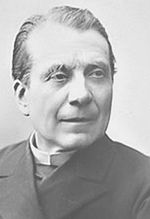About Agénor Bardoux
- Agénor Bardoux (15 January 1829, Bourges, Cher – 23 November 1897, Paris) was a French statesman and republican, son of Jacques Bardoux (Moulins, 3 February 1795 – Clermont-Ferrand, 8 January 1871) and wife Thérèse Pignet (Limoges, 6 April 1807 – St.
- Saturnin, 25 March 1883). A native of Bourges, he was established as an advocate in Clermont-Ferrand, and did not hesitate to proclaim his Republican sympathies.
- In 1871 he was elected deputy of the French National Assembly, and re-elected in 1876 and in 1877.
- In the chamber he was president of the Centre gauche group, standing strongly for the republic but against anti-clericalism, and during the constitutional crisis of May 1877 he was one of the 363 signatories to the vote of no confidence.
- In the subsequently elected republican chamber he became minister of public instruction (December 1877) and proposed various republican laws, notably on compulsory primary education.
- He resigned in 1879.
- He was not re-elected in 1881 but in December 1882 was named senator for life.He married in Montpellier on 15 July 1873 Clémence Villa (Millau, 26 December 1847 – Paris, 2 December 1939), daughter of Achille Villa (Millau, 17 April 1818 – Millau, 7 April 1901) and wife Sophie Bimar (Montpellier, 13 October 1824 – Montpellier, 6 February 1885), by whom he had at least one son, the French senator and academic Jacques Bardoux.
- One of his descendants, Valéry Giscard d'Estaing (born 1926) was president of France from 1974 until 1981.
Read more at Wikipedia


 Date of Birth:
Date of Birth:  Place of Birth: Bourges, Centre-Val de Loire, France
Place of Birth: Bourges, Centre-Val de Loire, France